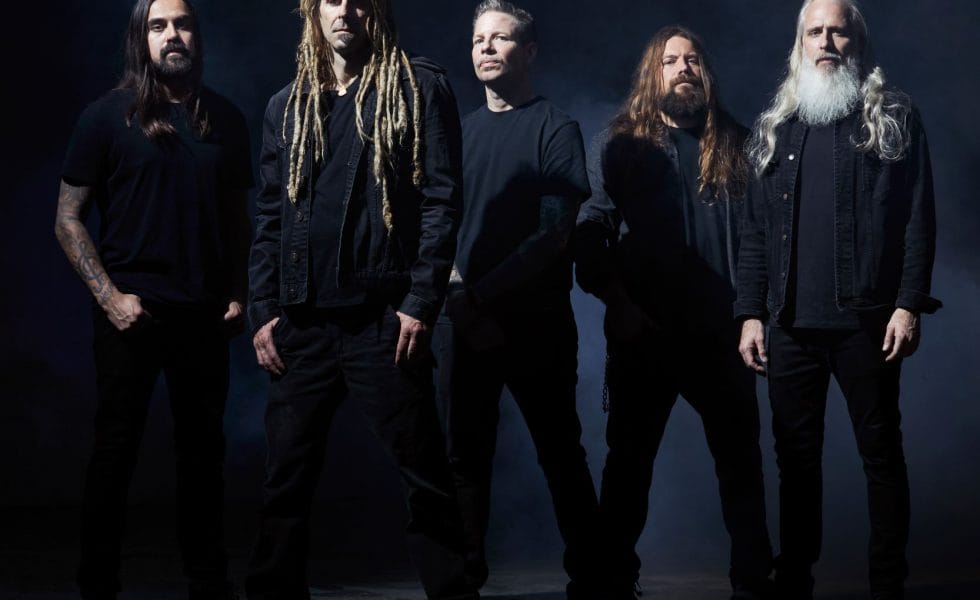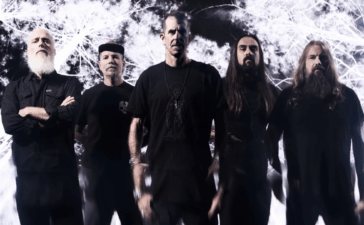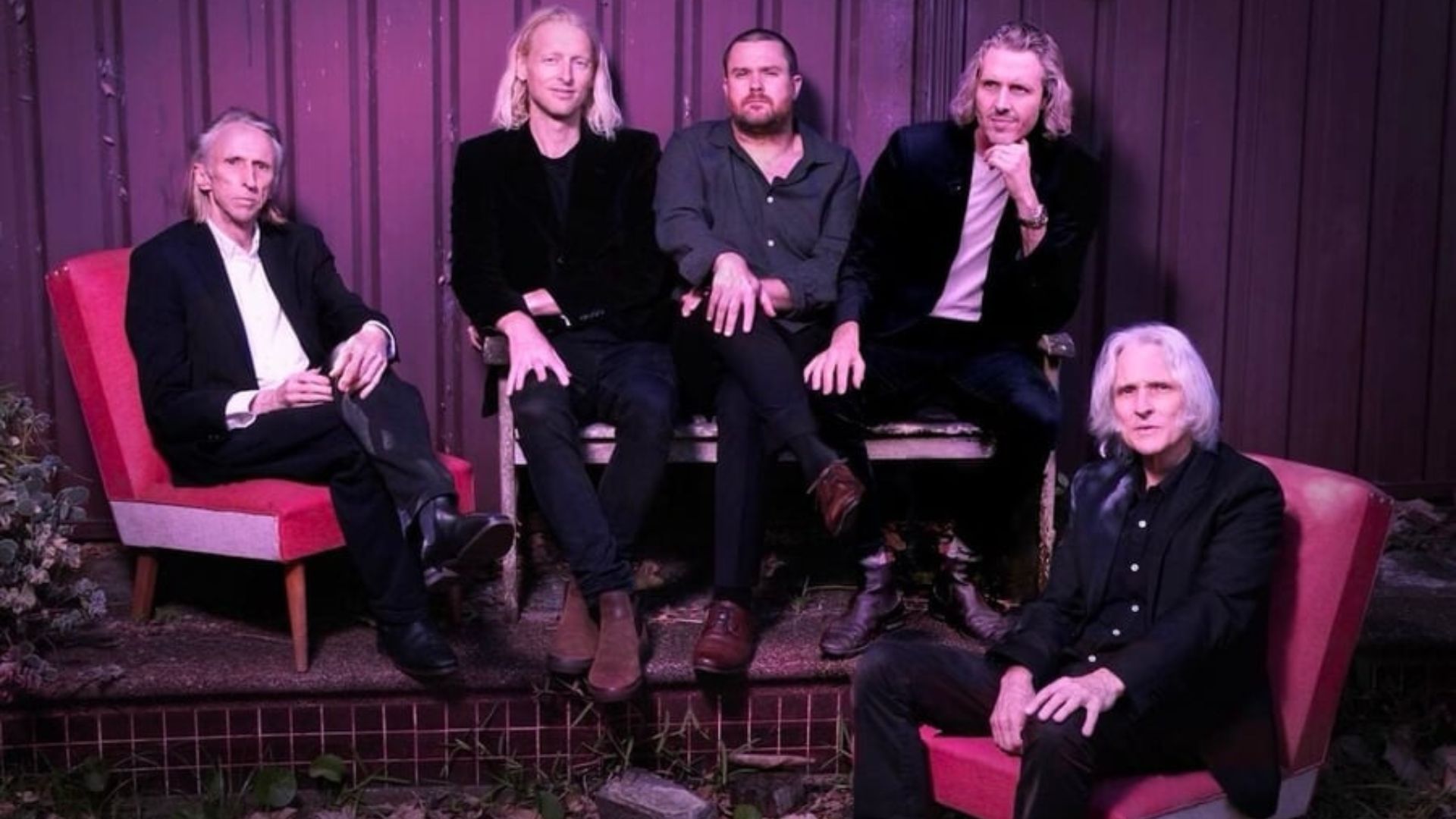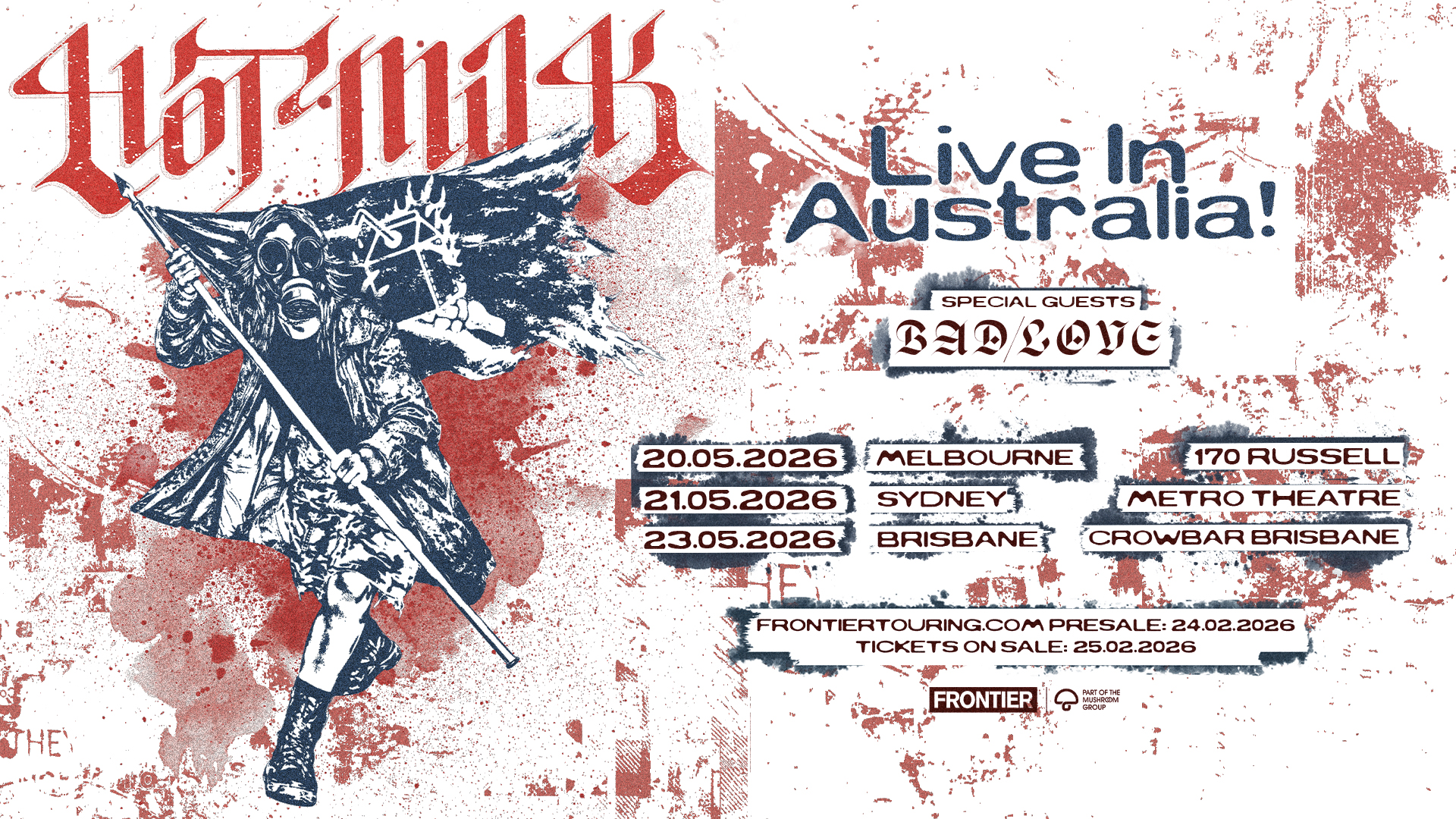“Shit is wild, you know?”
That’s the first take offered by Lamb of God frontman Randy Blythe, as we kick off our chat about the band’s forthcoming self-titled LP, their eighth studio album, and one which is landing in the middle of social and political upheaval in their home country of America.
Whether the man likes it or not, Blythe is the closest thing to a household name that the counterculture of modern metal will ever have, a contemporary spokesman for the 21st century chapter in the genre’s history.
When he speaks, the people listen, and not just because he writes decent lyrics and screams somewhat catchy phrases over groovy riffs.
For many, Blythe is an entertainer who has lived through and has been honest about facing many a shitstorm in life. Be it his public struggle with alcoholism in the past, dealing with manslaughter trials or making sense of the world through genuinely interesting essays, it’s no surprise that (with the help of his platform) many have looked to Blythe as an ‘elder’ of sorts.
Listening to him articulate his understanding of the context into which his band’s new album is falling, as well as his own understanding of the current social moment, it’s easy to be ushered onto his thought train.
“The world is a super crazy place….we apparently live in the ‘post-truth’ era, which I find ludicrous, because truth is empirical, it’s always there, there’s only truth or alternative facts….you hear these phrases tossed around, and I think , ‘How in the fuck did we get here? How did we get to a point where facts don’t seem to matter much and everything is subjective?’” he muses.
“It seems to me that the materialistic pursuit of wealth, and this outward barometer of material well-being, seems to be the genesis of that. I think, ‘When did that start?’ Well, to me that seems to coincide with the start of the industrial revolution, and that led to advertising. We’re bombarded with all this stuff! You have to have this, all these status symbols that people have….it’s a false paradigm, this idea that buying things will make you happy. I’m not allergic to making money, but I use it as a tool to do the things that I want to do. So everything on this record kind of stems from that question of why, and how did we get to this particular place?”
“No offence to you or anyone that’s interviewing me. I don’t really like talking about music, or discussing it, or any of that shit.”
It’s an honest take on a system that Blythe and his colleagues have been rewarded by. After all, we’re doing an interview that’s promoting a product that Blythe has put out into the world. However, the singer is adamant that when it comes to the press cycle, the focus is to get people ready to experience the songs in the concert setting.
“I kind of find the entire thing a pain in the ass,” he says bluntly about the press cycle. “No offence to you or anyone that’s interviewing me. I don’t really like talking about music, or discussing it, or any of that shit.”
“The process of making it is so….exhausting. When I’m done with it, I want it to be done, because I’ve spent months and months working on it and it consumes me, I create this thing and I want it to just speak for itself. I don’t listen to our music, when the final mix is approved I think, ‘Thank fucking God I don’t have to hear that anymore!’
“I’d be a terrible manager for a band. I’d be like, ‘Make your record and let’s put it out.’ As far as promoting goes, I enjoy just being on tour and playing the songs. I just like going out and playing shows. But, regrettably, that doesn’t seem to be happening anytime soon.”
The record itself certainly sounds like it’s tailor made for the classic Lamb of God fan, with the act offering a far more condensed collection of songs when compared with their somewhat bloated (but nevertheless entertaining) 2015 LP VII: Sturm und Drang.
“I know how to do Lamb of God. I’ve done it for 25-fucking years!”, says Blythe of where the collective find themselves on their new record.
“Lamb of God’s a metal band and I’m not a metalhead, so it feels very strange to be in a metal band. But the more you practice your craft, that can only make you a better musician. That extends to listening habits as well. If you only listen to metal then you don’t have much of a musical vocabulary!”
It’s clear that as far as ‘vocabulary’ goes, be it conversational or musical, Blythe has plenty more to offer moving forward into the 20’s, which is why it makes sense to close our interview by asking if he’s planning on joining the podcast wagon in the foreseeable future.
“Absolutely. I’ve had a few podcast network guys talk to me about doing one, I’ve thought about it. But I wouldn’t do a music podcast, there’s 8 million of them,” he says.
“I don’t really care about talking about music too much. I have a bunch of really weird friends, I think conversations with them would be the kind of thing to explore in the future.
“Things tend to work if there’s a unifying theme. In theory, if I can work out a topic to explore with all these people that I know, then I think that would make for a pretty interesting podcast.”
Be it Lamb of God records or potential podcast episodes, the more Randy Blythe material in the world, the better we’ll be for it.










